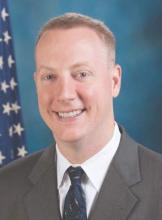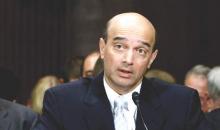An expansion of the Diabetes Prevention Program (DPP), announced July 7 in the proposed Medicare Physician Fee Schedule for 2017, would allow recognized suppliers to submit claims to the Centers for Medicare & Medicaid Services for payment beginning Jan. 1, 2018.
The proposed expansion would allow patients across the United States to access community-based intervention that curbs diabetes and keeps families healthy, according to Patrick Conway, MD, CMS chief medical officer.
“This is part of our efforts for better care, smarter spending, and healthier people,” Dr. Conway said in a statement. The “proposal is an exciting milestone for prevention and population health.”
The Diabetes Prevention Program started in 2011 as an Affordable Care Act pilot program awarded to the National Council of YMCAs of the United States of America (Y-USA). Medicare patients at high risk for diabetes attended 16 intensive educational sessions in a group-based, classroom-style setting and practical training in long-term dietary change, increased physical activity, and behavior change strategies for weight control.
The pilot resulted in savings of $2,650 per enrollee over 15 months, according to CMS, compared with costs associated with nonprogram beneficiaries – enough to cover the cost of the program. Program participants also were shown to lose an average of about 5% of their body weight.
In March 2016, the U.S. Health and Human Services Department announced that the CMS Office of the Actuary had certified the pilot Diabetes Prevention Program model as a cost savings program that reduced net Medicare spending. HHS determined that the program demonstrated the ability to improve the quality of patient care without limiting coverage or benefits.
In the fee schedule proposal, CMS is suggesting that each health care provider who offers services as part of a CDC-recognized organization delivering DPP services obtain a National Provider Identification number to provide Medicare DPP services, allowing supplier enrollment beginning as early as Jan. 1, 2017. In addition, CMS envisions a payment structure tying payment for Medicare DPP services to the number of sessions attended by patients and the achievement and maintenance of minimum weight loss. Claims for payment under the Medicare DPP would be submitted following the achievement of core session attendance and minimum weight loss, and following maintenance session attendance and maintenance of minimum weight loss, according to the proposal.
CMS has not decided whether the Medicare DPP should be expanded nationally in the first year of the program or whether it should be phased in.
The American College of Physicians expressed support for DPP expansion and said that organization leaders plan to provide comments on the basic framework.
“As a practicing primary care internist myself, I am greatly encouraged that CMS is proposing substantial improvements to help me and my colleagues provide coordinated, patient-centered, high-value, and team-based care to our patients,” ACP President Nitin S. Damle, MD, said in a statement. “We look forward to providing CMS with detailed comments to support these improvements while recommending other changes to strengthen primary care.”
Robert E. Ratner, MD, chief scientific and medical officer for the American Diabetes Association agreed.
“Providing people with prediabetes with effective tools to prevent diabetes is a win for all of us,” Dr. Ratner said in a statement. “We appreciate HHS’s continued commitment to improving the nation’s health and helping us reduce the incidence and burden of diabetes across the country.”
Wanda Filer, MD, president of the American Academy of Family Physicians, said her organization was still analyzing the proposal, but that the expansion sounds positive for health care.
“We think the expansion is a great idea for patients,” she said in an interview, adding that it’s essential that doctors are reimbursed for preventive services. “Frankly, if you do the work, you need to get paid.”
CMS will accept comments on the proposed rule until Sept. 6. The proposed rule will appear in the July 15 Federal Register.
On Twitter @legal_med




